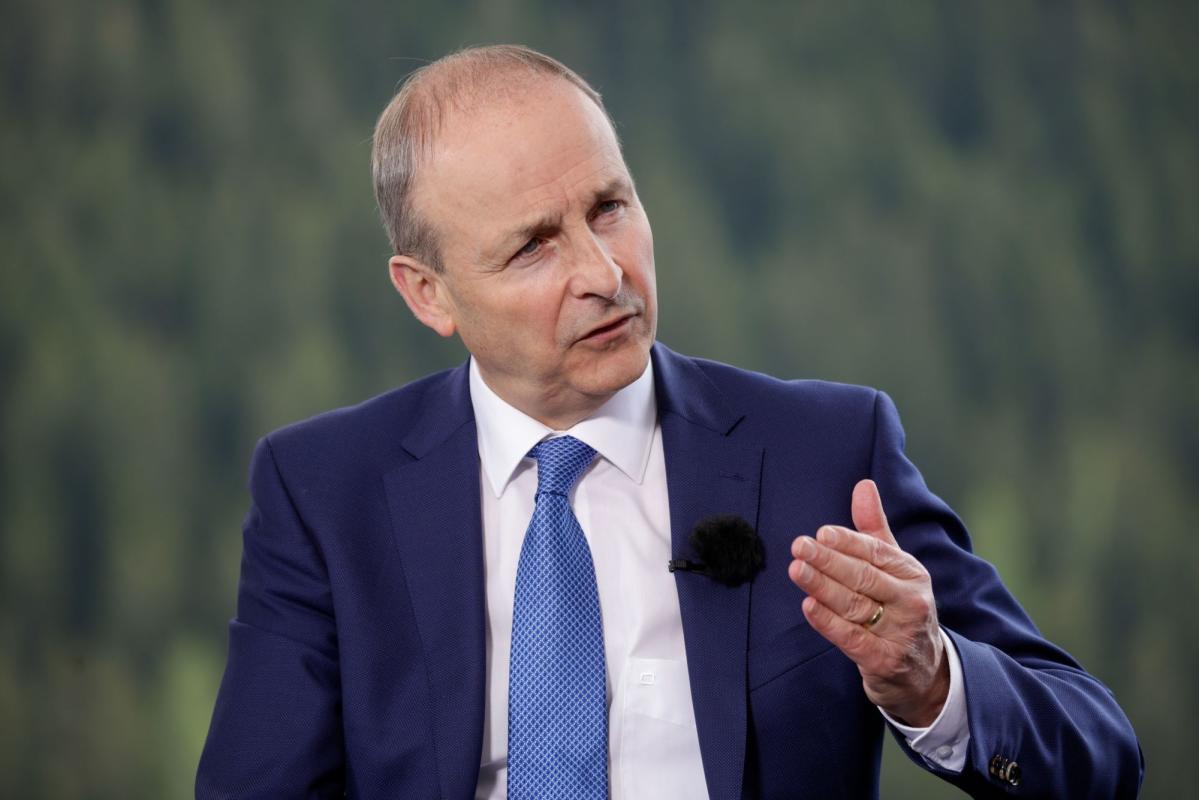
(Bloomberg) — Prime Minister Rishi Sunak and his Irish counterpart Micheal Martin will hold talks Thursday, a further indication that the UK government is pushing hard to end a long-running spat with the European Union over Brexit.
Most Read from Bloomberg
UK-EU relations have been strained for months over post-Brexit arrangements in Northern Ireland. But negotiations restarted in October, and there are clear signs of progress on a deal, with Irish Foreign Minister Simon Coveney saying this week that an agreement is “doable” by the end of the year.
Read more: UK to Delay Northern Ireland Vote, Hopes for EU Deal First
Sunak will meet Martin in northwest England ahead of a British-Irish Council summit, where the UK premier is expected to call for pragmatism and for all sides to “work together in our shared interests.”
The stakes are high for Sunak’s government, not least because tensions with the EU have at times threatened to boil over into an all-out trade war at a critical time. But finding a resolution is also key to ending Northern Ireland’s own political impasse, which creates a major headache for London.
Sunak will stress his commitment to restoring the power-sharing executive in Northern Ireland “as soon as possible,” according to an emailed statement from his office.
The original Brexit deal lies at the heart of the problem. In it, the UK and EU agreed that in order to avoid a hard border on the island of Ireland, Northern Ireland should remain in the bloc’s single market. That solution is broadly welcomed by the region’s nationalists but has angered many unionists because it treats post-Brexit Northern Ireland differently to the rest of the UK.
The region’s power-sharing government has not functioned since February, with the Democratic Unionist Party blocking its formation until the so-called Northern Ireland protocol is changed.
The UK also argues that implementing the Brexit deal, which effectively created a customs border in the Irish Sea, has disrupted trade between Great Britain and Northern Ireland.
Progress, Challenges
This week, the EU began testing the UK’s live trade database, which if it satisfies the bloc, could pave the way for an agreement to ease customs checks — one of the key issues that needs to be resolved for a wider deal.
Then on Wednesday, the UK said it will legislate to give more time for Northern Irish political parties to form a power-sharing government before elections have to be held — a clear signal that London is hoping it can strike a deal with the EU that will be acceptable to the DUP and persuade it to drop its demands.
The delay “aims to create the time and space for talks” between the UK government and the European Commission to develop, and for political parties to try to end their impasse “as soon as possible,” the UK’s Northern Ireland Secretary Chris Heaton-Harris told Parliament.
Read more: UK Closes In on EU Breakthrough in Long-Running Brexit Spat
But amid all the optimism, there are major challenges for the UK and EU to overcome, especially if the deal they come up with can appeal to unionists. Beyond customs checks, the question of governance of Northern Ireland looms large.
The UK, for example, is demanding that the European Court of Justice be stripped of its role in settling Brexit disputes in the region. That’s a red line for the EU.
Sunak is also expected to meet with Nicola Sturgeon, the first minister of Scotland, and Mark Drakeford, the first minister of Wales, at the summit Thursday. Northern Ireland will not be represented by any politicians there due to the collapse of the executive.
–With assistance from Ellen Milligan.
Most Read from Bloomberg Businessweek
©2022 Bloomberg L.P.




